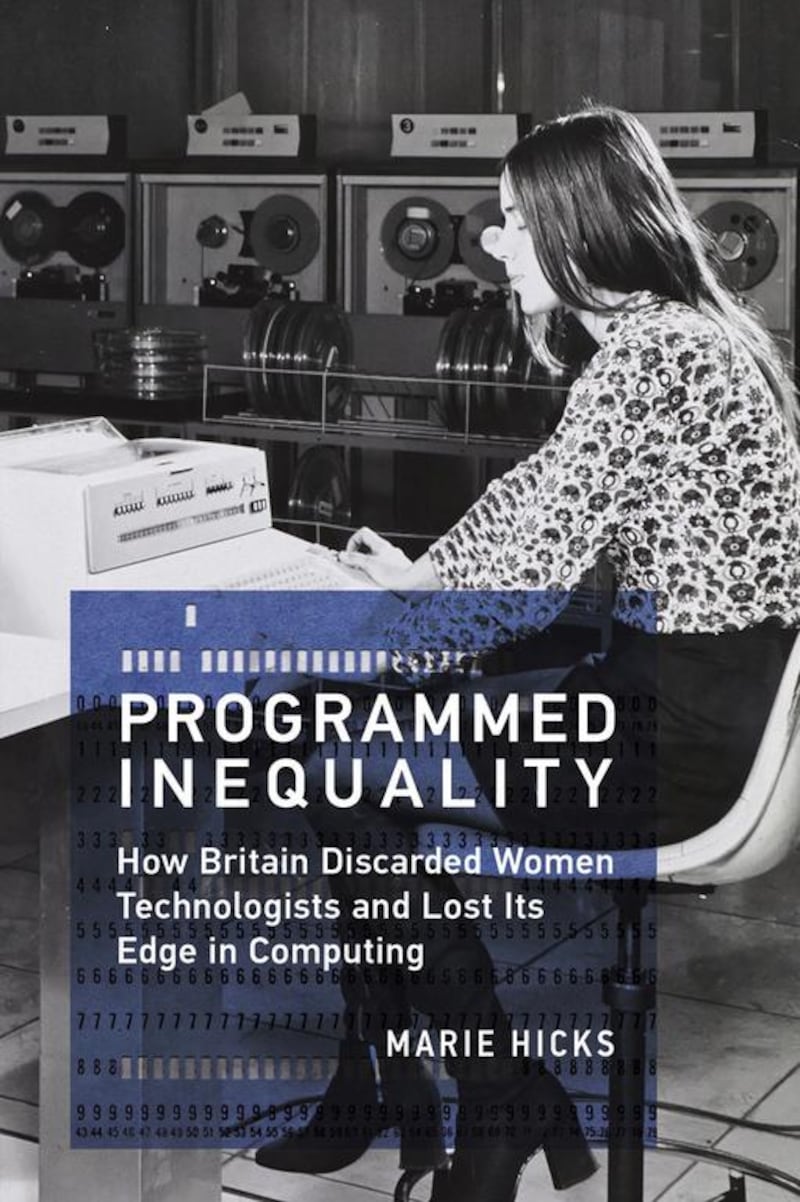During the Second World War, thousands of women worked as skilled computer operators at Bletchley Park, the UK government’s code-breaking site, with their efforts undoubtedly helping to win the conflict.
By the end of the war, Britain was leading the world in cutting-edge computer technology and the government determined to capitalise on that advantage and reinvent the nation as a technological superpower as its empire waned.
The story of Britain's failure to achieve this goal is told by Marie Hicks through a gender lens in her book Programmed Inequality: How Britain Discarded Women Technologists and Lost its Edge in Computing, published in January.
Hicks traces the role of women in computing in the UK from the 1940s to the 1980s. During those years, women were marginalised within the industry as computing moved from being considered low-paid, unskilled and therefore “women’s work” to higher paid, skilled “men’s work”.
This categorisation was created and perpetuated by the UK’s largest employer, the civil service, which wanted to preserve the societal status quo (men as the main breadwinners, women as homemakers) and power in the hands of an elite few (white, middle-aged men) even at the expense of economic progress.
This policy, however, backfired as computing became more important, and the UK found itself suffering from a skills shortage because of the exclusion of women. The eventual result was the eclipse of the UK’s computer industry by the US.
This is not a light read. The writing is rather academic in style but it becomes more manageable as the book progresses with the best sections, documenting the personal experiences of the few women who made it in computing in the 1960s, coming midway.
The history behind the book is important because of the lessons it holds for today’s tech economies, warns Hicks.
It is well documented that the industry’s quota of women to men is far lower; women comprise about a third of the workforce in Silicon Valley for example.
It is not enough to influence the individual career choices of workers, to attempt to entice girls, women and minorities into the field, says Hicks. The structural issues of dominance and control that created institutionalised discrimination in the first place must also be addressed.
q&a clear gender bias pattern
Lianne Gutcher expands on Marie Hicks' Programmed Inequality:
Did any of the women pioneers in computing make it to the top?
Yes, but very few and most of them left the public sector to advance their careers. One was Stephanie “Steve” Shirley. After leaving her government post, she founded a software services company. Cleverly, she tapped into the pool of skilled women who were “discarded” from the workforce. By allowing her employees to work from home, something other employers did not permit, her company reaped the benefits of these women’s experience. However, even Ms Shirley was forced to make concessions to the masculine working environment. She adopted the nickname “Steve” when she realised that using her real name shut her out of opportunities.
Is that “Steve” on the book’s cover?
No. That’s Cathy Gillespie. She started her operating career at the UK government’s Post Office computing centre, after quitting secretarial college because of the dead-end nature of the work. She had to swear she wouldn’t have children in the near future to clinch the job.
What happened after that?
After two years, Ms Gillespie moved to IBM, which is where this publicity shot was taken in 1970. As the author writes, the way the photo is staged, “Gillespie sits in a seeming passive role … in a way similar to a secretary at a keyboard”. By contrast, photos of men show them “striding around with a sense of gravitas that seemed to heighten their importance”.
business@thenational.ae
Follow The National's Business section on Twitter





